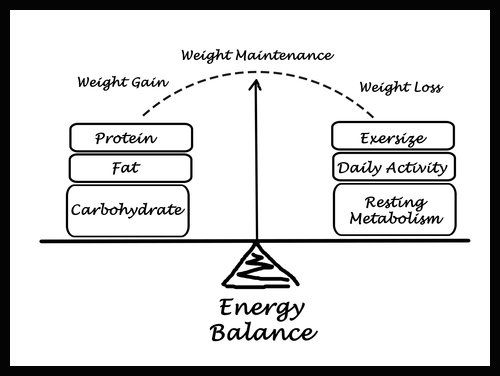You Begin to Burn Fewer Calories Around Age 45

Part 2 of a two part series on Hormonal Imbalance and Weight Loss
When your hormones are in balance, your metabolism is responsible for maintaining how many calories your body burns when active and at rest. Hormones are made in endocrine glands and passed from the cells of the gland directly into the blood flowing through the gland. Just like the nervous system, the endocrine system helps your body cope with many different situations or stresses. Around age 45, your metabolism begins to burn fewer calories a day, which can translate into a weight gain of up to a dozen pounds per year.
Insulin is produced by the pancreas to manage blood sugar
Insulin is a hormone that is produced by the pancreas to help manage your blood sugar levels when certain foods are consumed. If you tend to snack on sugary foods throughout the day, you keep the insulin in your body working overtime trying to clear the sugar from your blood. Once your body finishes absorbing glucose and other nutrients from your bloodstream, it must turn to its fat stores for energy and your body enters its fat burning mode. Insulin is not a "bad" hormone and one that is essential for survival. But, high insulin levels due to hormonal imbalance prevent weight loss and may be making you unhealthy.
Too little or too much thyroid hormone is bad
Excess or lack of thyroid hormones can impact your metabolism in very negative ways. To lose weight and keep it off, your thyroid hormone levels need to be in balance, neither too low nor too high. If left untreated, hypothyroidism can lead to a dangerous condition that causes swelling of tissues, increased fluid around the heart and lungs, slowed muscle reflexes and a slowed ability to think. Lower levels of thyroid hormone can affect your mitochondria (the cells that produce energy for your body), so there is less energy wasted. That would be great if you were experiencing a famine because it preserves your fat stores, which is contrary to burning fat and losing weight.
Appetite and hunger are controlled by complex factors
Your body generally relies on hormonal balance to avoid changes in body weight by regulating your appetite and hunger signals (leptin and ghrelin). Appetite and hunger are controlled by a host of complex factors that require hormonal balance to interact correctly. Moreover, these hormonal mechanisms may be different for men and women as well as among men and women. Modern diets are saturated with foods that contain fructose, which is used in many processed foods. When you intake too much fructose, your body stores it as fat and the subsequent excess of leptin can result in your becoming leptin resistant.
By submitting this form, you agree to receive marketing text messages from us at the number provided, including messages sent by autodialer. Consent is not a condition of any purchase. Message and data rates may apply. Message frequency varies. Reply HELP for help or STOP to cancel. View our Privacy Policy and Terms of Service.

